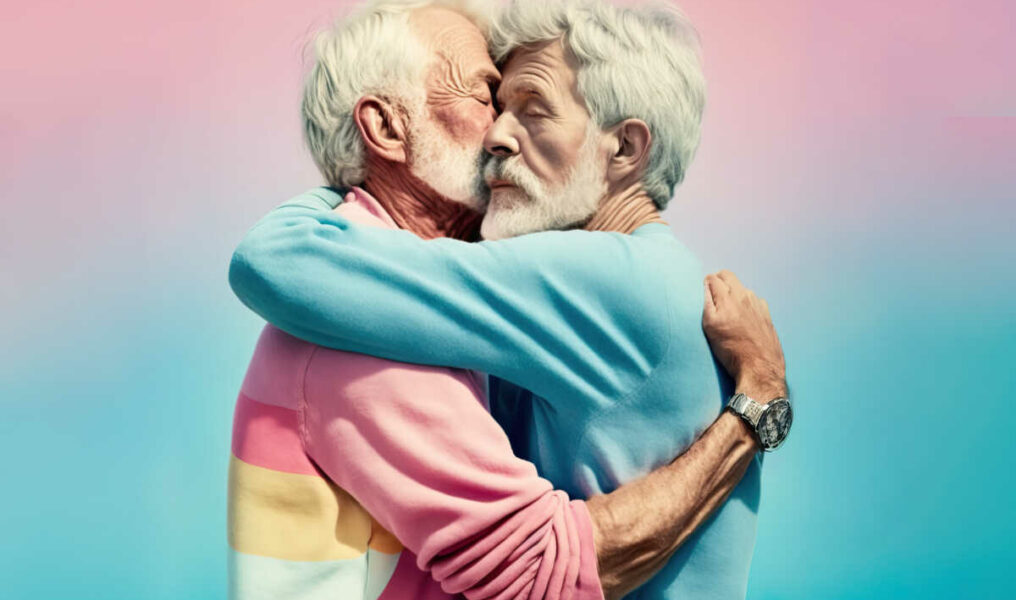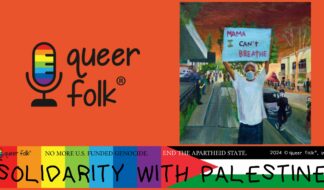The Supreme Court Ruled in Favor of Anti-LGBTQ+ Website Creator. What Does It Mean for Michigan?
Community leaders fear the ruling could open the floodgates of anti-LGBTQ+ discrimination

In a very sad ending to Pride Month, the Supreme Court ruled Friday, June 30 in favor of a Colorado web designer who, citing religious objections, refuses to design websites for same-sex weddings. This decision marks, according to the ACLU, the first time the Supreme Court has permitted a business open to the public to turn away customers in defiance of a nondiscrimination law such as the one Colorado has in place.
The case was brought at the behest of Lorie Smith of 303 Creative, who told CNN following the ruling that “the court’s decision yesterday protects speech not just for me but the LGBT website designer and every other artist out there,” said Smith. “Nobody should be punished by the government for speaking consistent with their beliefs. I create speech for a living. When speech is involved, speech should be protected.”
While the decision was framed by Smith and her lawyer, as well as the conservative majority on the court, to center on free speech and not religious freedoms, the decision did not fool the three liberal justices who apparently saw it for what it was.
“By issuing this new license to discriminate in a case brought by a company that seeks to deny same-sex couples the full and equal enjoyment of its services, the immediate, symbolic effect of the decision is to mark gays and lesbians for second-class status,” Justice Sonya Sotomayor wrote in her dissent, which she insisted on reading out loud in its entirety — some 20 minutes’ worth — in open court. “The opinion of the Court is, quite literally, a notice that reads: ‘Some services may be denied to same-sex couples.’”
Sotomayor went on to say the ruling could open the door to allowing venues to eventually discriminate against others, such as interracial couples. Justice Neil Gorsuch responded curtly to the accusation. “Our decision today does not concern — much less endorse — anything like the ‘straight couples only’ notices the dissent conjures out of thin air,” he said.
Here in Michigan, the ruling was hailed as a victory by the owners of homophobic wedding venue The Broadway Avenue in Grand Rapids, which has been under fire since opening last year and revealing that their religious beliefs would not allow them to hold same-sex weddings in their space. This violated Grand Rapids’ non-discrimination ordinance, but even after being cited, the venue held its ground and celebrated last week’s ruling on social media.
“Over the past year we have learned what it truly means to stand for Jesus in all that we do,” the venue said via a Facebook post following the ruling. “We have learned to be completely dependent on Him which is where He loves to meet us in our needs with such tenderness and care.”
Unfortunately, owners Hannah and Nick Natale apparently do not believe Jesus’ tenderness and care extends to queer people. Instead, they choose to send a hateful message of exclusion and division. Thankfully, not all venue owners in the state share the Natales’ closed-mindedness.
Tabitha Mason is a managing partner of Zingerman’s Cornman Farms, a Dexter venue that hosts weddings and private parties. She was particularly bothered by the ruling.

“I was raised that looking after the marginalized is one of God’s characteristics, too,” said Mason, who said she grew up in a religious home and that her first name is Biblical. Tabitha, found in Acts 9, was known for her good works and acts of love. “It’s bigotry, fear and hate — not faith — spurring homophobia. The recent Supreme Court rulings are incredibly disappointing.”
Mason went on to say that venues that discriminate based on gender identity or sexual orientation only hurt the wedding industry. “Venues and vendors that refuse to serve LGBTQ+ couples should find another industry to be in. They aren’t welcome in my world. We celebrate love, not hate.”
What’s more, Mason said, is that The Broadway Avenue, which she connected with via social media before they opened, “disgusts and infuriates” her. “But, also, I’m glad to know how they really feel. … I was excited to have made a venue owner ‘friend.’ When the story first broke and I discovered their anti-LGBTQ+ beliefs, I immediately stopped connecting with them.”
Mason said Sotomayor summed up her own feelings succinctly.
“She said, ‘LGBT people do not seek any special treatment. All they seek is to exist in public. To inhabit public spaces on the same terms and conditions as everyone else.’ I am not interested in working with, providing support to or spending money with any business that chooses to discriminate against any group of people.”
What’s next?
The ruling, legal experts worry, might just be the opening of the floodgates as it relates to businesses discriminating against queer people. “The Supreme Court ruled for the first time in its history that some businesses have a constitutional right to discriminate against LGBTQ+ customers,” said Jay Kaplan of ACLU of Michigan’s LGBTQ+ Project. “While the decision was written in a way that should apply to a quite narrow set of businesses, the fact that the high court has used free speech to override non-discrimination protections even in limited circumstances is a seriously disturbing milestone. Everyone should be worried about the damage the court may do to our civil rights laws in the future.”
Kaplan reiterated that the ruling applies only to services that are customized and contribute to the overall message that the business conveys in its product. Despite that, Kaplan said that since the conservative majority on the high court is “so focused on expanding the scope or religious liberty and rolling back civil rights protections, I fear that this decision may be interpreted to license discrimination by many more businesses.”
Erin Knott, executive director of Equality Michigan, agreed.
“This unprecedented decision will have a harmful impact on the LGBTQ+ community,” she said. “It’s dangerous and outrageous, especially during a year when the LGBTQ+ community continues to be targeted by extremist politicians and leaders across the country, and right here in Michigan, with anti-LGBTQ+ rhetoric, policy proposals, etc.”
No one should face discrimination for who they are or who they love, Knott added, but “the Supreme Court’s ruling threatens to normalize such prejudice and discrimination.”










